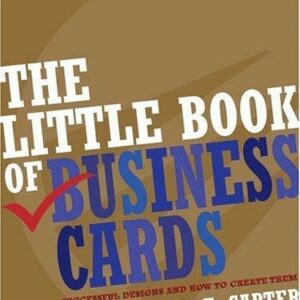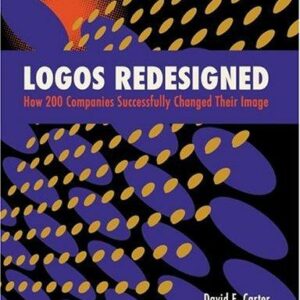When McKinsey Comes to Town
$35.00
| Title | Range | Discount |
|---|---|---|
| Trade Discount | 5 + | 25% |
- Description
- Additional information
Description
NEW YORK TIMES BESTSELLER • An explosive, deeply reported exposé of McKinsey & Company, the international consulting firm that advises corporations and governments, that highlights the often drastic impact of its work on employees and citizens around the world
“Meticulously reported, and ultimately devastating, this is an important book.” —Patrick Radden Keefe, New York Times bestselling author of Empire of Pain and Say Nothing
McKinsey & Company is the most prestigious consulting company in the world, earning billions of dollars in fees from major corporations and governments who turn to it to maximize their profits and enhance efficiency. McKinsey’s vaunted statement of values asserts that its role is to make the world a better place, and its reputation for excellence and discretion attracts top talent from universities around the world. But what does it actually do?
In When McKinsey Comes to Town, two prizewinning investigative journalists have written a portrait of the company sharply at odds with its public image. Often McKinsey’s advice boils down to major cost-cutting, including layoffs and maintenance reductions, to drive up short-term profits, thereby boosting a company’s stock price and the wealth of its executives who hire it, at the expense of workers and safety measures. McKinsey collects millions of dollars advising government agencies that also regulate McKinsey’s corporate clients. And the firm frequently advises competitors in the same industries, but denies that this presents any conflict of interest.
In one telling example, McKinsey advised a Chinese engineering company allied with the communist government which constructed artificial islands, now used as staging grounds for the Chinese Navy—while at the same time taking tens of millions of dollars from the Pentagon, whose chief aim is to counter Chinese aggression.
Shielded by NDAs, McKinsey has escaped public scrutiny despite its role in advising tobacco and vaping companies, purveyors of opioids, repressive governments, and oil companies. McKinsey helped insurance companies’ boost their profits by making it incredibly difficult for accident victims to get payments; worked its U.S. government contacts to let Wall Street firms evade scrutiny; enabled corruption in developing countries such as South Africa; undermined health-care programs in states across the country. And much more.
Bogdanich and Forsythe have penetrated the veil of secrecy surrounding McKinsey by conducting hundreds of interviews, obtaining tens of thousands of revelatory documents, and following rule #1 of investigative reporting: Follow the money.
When McKinsey Comes to Town is a landmark work of investigative reporting that amounts to a devastating portrait of a firm whose work has often made the world more unequal, more corrupt, and more dangerous.New York Times Bestseller • A New York Times Book Review 100 Notable Books of the Year • One ofThe Washington Post’s 50 Notable Works of Nonfiction • Investigative Reporters & Editors 2022 award winner for Best Investigative Book
“Deeply reported…The portrait this book creates is one of a company chasing profits, spreading the gospel of downsizing and offshoring, its leaders virtually unmoored form any guiding principles or moral code…a clear and devastating picture of the management philosophy that helped drive the decline of a stable American middle class over the last 50 years.”
—The New York Times Book Review
“Walt Bogdanich and Michael Forsythe shatter the luminous image of McKinsey & Co…In a masterful work of investigative journalism building on their reporting for the New York Times, Bogdanich and Forsythe pierce through McKinsey’s “culture of secrecy…Superb”
—The Washington Post
“A harrowing account of decades of dishonourable exploits at McKinsey.”
—The Economist
“The authors find McKinsey’s fingerprints on most every major corporate scandal of recent generations, from big tobacco starting in the 1950s to big pharma in the years leading to the opioid scandals. More striking is their effort to implicate the firm in a long list of broader social and economic ills like income inequality, the hollowing out of the middle class, and the financial crisis of 2007-8….the evidence Bogdanich and Forsythe amass is impressive….That McKinsey’s deep connection to many of these corporations and policies has not been well known is in part a function of the firm’s obsessive focus on secrecy, enforced through a web of strict non-disclosure agreements. This makes the reporting that went into “When McKinsey Comes to Town” all the more remarkable.”
—Business Insider
“When McKinsey Comes to Town is highly informed, a fascinating read. The authors, New York Times investigative reporters Walt Bogdanich and Michael Forsythe, have done their homework. They name names, connect dots and unearth documents. Sources speak in Technicolor….Speaking to Bogdanich and Forsythe, one former McKinsey consultant put the reach of the firm into some perspective. Forget secret cabals, ‘illuminati, lizard people, or globalists’ he said. Instead, ‘there is … McKinsey.’”
—The Guardian
“Bogdanich and Forsythe peel back the layers of secrecy surrounding management consulting firm McKinsey & Co. in this revelatory and often shocking account. Drawing on interviews with ‘nearly one hundred current and former McKinsey employees,’ as well as client and billing records, the authors uncover a devastating pattern of harm caused by greed, conflicts of interest, and unethical behavior…. Scrupulously documented and fluidly written, this is a jaw-dropping feat of investigative journalism.”
—Publishers Weekly (starred review)
“Two award-winning New York Times investigative reporters take down the world’s leading consulting firm, counsel to mega-corporations, dictators, and union-busters everywhere….. A startling case study of how unchecked corporate power affects world affairs—and all of us.”
—Kirkus Reviews
“The nearly century-old McKinsey & Company describes itself as the world’s largest consulting firm. Sounds benign, doesn’t it? Yet McKinsey’s sway over some of the most influential industries and domestic and foreign government agencies is a manifestation of corruption and greed down to the molecular level. Cleverly employing a panoply of NDAs and other protective legal tools, McKinsey further cloaks itself behind a thick scrum of obfuscating corporate-speak peppered throughout its infamous PowerPoint slide decks. With clients in energy and entertainment, the FDA and the NBA, Saudi Arabia and South Africa, McKinsey touts its skill at increasing profitability and efficiency, chiefly through draconian, often dangerous, staff cutbacks and price- cutting. Such advice, however, comes with a hefty price tag, yet when a client becomes mired in scandal, often resulting from McKinsey’s recommendations, the company’s fingerprints are nowhere to be found. Recipients of multiple prestigious prizes for their far-reaching investigative journalism, Bogdanich and Forsythe pull back the curtain on the unseen depths of McKinsey’s pernicious and insidious influence. Thanks to their unprecedented level of access to crucial records and key insider accounts, this monumental corporate exposé will do for management consulting what Patrick Radden Keefe’s Empire of Pain (2021) did for the opioid epidemic and the Sacklers.”
—Booklist
“Two of the finest investigative reporters in the business got behind the wall of secrecy erected by one the world’s most influential companies. WHEN MCKINSEY COMES TO TOWN is a revelatory – and disturbing – portrait of a powerful firm whose vaunted reputation is belied by its actions.”
—Jane Mayer, New York Times bestselling author of THE DARK SIDE and DARK MONEY
“In government and the private sector, in the United States and around the world, the influence of McKinsey is difficult to overstate. Walt Bogdanich and Michael Forsythe penetrate the firm’s vaunted culture of secrecy to expose the complicity of business consultants in abetting the conduct of unsavory clients — from despots to opioid pushers — and the malign ways in which McKinsey’s “scientific management” ends up impacting all of our lives. Panoramic, meticulously reported, and ultimately devastating, this is an important book.”
—Patrick Radden Keefe, New York Times bestselling author of SAY NOTHING and EMPIRE OF PAIN
“Bogdanich and Forsythe show how McKinsey, rather than optimizing social welfare, optimizes corporate profits and greed. In doing so the Firm has become a super spreader of corporate misdeed and contributed to America’s growing inequality problem. Hypocrisy, avarice, ridiculous power points, aiding and abetting the world’s polluters and drug companies. Every page made my blood boil as I read about McKinsey’s flawed reasoning and the vast profits made from ethically dubious work for governments, polluting companies and big pharma.”
—Joseph E. Stiglitz, Nobel Laureate in economics 2011 and University Professor, Columbia University
“After the publication of When McKinsey Comes to Town, the secretive consulting firm is going to need its own management consultant to address the damage. The book is a devastating account of McKinsey’s influence at the top levels of government and industry. In arresting detail Bogdanich and Forsythe show how McKinsey has enabled—and profited from—one bad actor after another, from American opioid and cigarette makers to Russian oligarchs and state monopolies to Saudi Arabia’s accused murderer-prince, Mohammed bin Salman, even while boasting that it’s making the world a better place. The book is a tour de force of investigative reporting.”
—James B. Stewart, New York Times bestselling author of Den of Thieves and Bloomberg Professor of Business Journalism at Columbia UniversityWALT BOGDANICH is an investigative reporter for The New York Times. He has been awarded three Pulitzer Prizes for his investigative journalism. He previously produced stories for “60 Minutes,” ABC News and The Wall Street Journal in New York and Washington. He has a B.A. in political science from the University of Wisconsin and a master’s degree in journalism from Ohio State University. He lives in Port Washington, NY.
MICHAEL FORSYTHE is an investigative reporter for The New York Times. At Bloomberg was part of a team that won the George Polk Award in 2013. Mr. Forsythe is a veteran of the U.S. Navy. He has a B.A. in international economics from Georgetown University and a Master’s degree in East Asian Studies from Harvard University. He lives in New York City.Chapter 1
Wealth Without Guilt
McKinsey’s Values
For the smartest, most accomplished college students, a job at McKinsey & Company can seem like a path to wealth and prestige as well as an opportunity to prove themselves by solving the business world’s toughest problems.
As a management consultancy, McKinsey has no peer, and acts like it. When it recruits each year, the firm might attract 200,000 applicants, hiring as little as 1 to 2 percent. A stint at McKinsey, even for a short time, is a lifelong passport to industry and government, thanks to the firm’s vast alumni network reaching around the world.
Other top companies dangle promises of riches and the status that comes with them. McKinsey offers that, but also something more—the opportunity for young recruits to use their talents for a higher purpose, to make the world a better place. “Change that matters,” McKinsey tells job candidates, a sales pitch of wealth without guilt. “We are a values-driven organization,” McKinsey insists.
By portraying itself as a company with a heart, not just a lust for profits, McKinsey appeals to younger, idealistic students concerned about issues like global warming, inequality, and racial justice. It is a potent sales pitch and a strong message to the future wolves of Wall Street that they need not apply. But the firm also offers something just as intoxicating: influence.
For the past century, McKinsey has methodically built its marquee consultancy by selling its philosophy of scientific management to the world’s best-known blue-chip companies. At one time or another most Fortune 500 companies have paid McKinsey for advice. So have more than a hundred government agencies around the world.
Because the firm won’t identify clients or disclose the advice it gives, Americans and, increasingly, people the world over are largely unaware of the profound influence McKinsey exerts over their lives, from the cost and quality of their medical care to the jobs that pay for their children’s education.
A search of records, including internal company documents, found that the firm has advised virtually every major pharmaceutical company—and their government regulators—along with health insurers, airlines, universities, museums, weapons makers, private equity firms, casinos, bookmakers, professional sports teams, and media companies, including The New York Times. Many of its consultants were just as comfortable advising Trump officials as they were Obama’s.
Operating in more than sixty-five countries, they can whisper in the ears of despots and elected leaders alike. In fifteen of those countries, the firm has advised the military, police and defense, and justice ministries. Its consultants have weighed in on the maintenance and support of “armored personnel carriers; minesweepers, destroyers and submarines.” Nations hire McKinsey to advise sovereign wealth funds worth more than $1 trillion. McKinsey’s own robust earnings make it possible for the firm to run a private hedge fund for senior partners, with large parts of its roughly $31.5 billion in assets under management concealed behind a tangle of shell companies on an island tax haven in the English Channel.
McKinsey’s reputation is enhanced by the success of its former consultants, including Tom Cotton, the conservative U.S. senator from Arkansas; Pete Buttigieg, U.S. secretary of transportation; Bobby Jindal, former governor of Louisiana; Sheryl Sandberg of Facebook; Lou Gerstner of IBM and American Express; and James P. Gorman of Morgan Stanley and Merrill Lynch. Outside the United States, McKinsey’s alumni have also reached exalted positions, including Kirill Dmitriev, head of Russia’s sovereign wealth fund; William Hague, Britain’s former foreign secretary; and the former Credit Suisse CEO Tidjane Thiam.
Although the firm is named after its founder, James O. McKinsey, its spiritual leader was Marvin Bower, who joined the consultancy in 1933, ushering in an era of professionalism patterned after the prestigious Cleveland law firm where he once worked. Brilliant but uncompromising, he defined how consultants should work and dress. He insisted that McKinsey call itself a firm, not a company; that it run a practice, not a business; and that client work be an engagement, not a job. According to the firm’s official history, “The very word commercial, when spoken about anyone at McKinsey, is akin to profanity,” one consultant said. Because of Bower’s principles—the most important being “client first”—the consultancy thrived.
A graduate of Harvard Law and Harvard Business School, Bower believed consultants are best recruited young and trained in-house because “it is easier and more effective to train outstanding people in their formative years.” He didn’t want consultants offering advice filtered through their prior business experience or, worse yet, their intuition.
Bower also developed the firm’s valuable ties to Harvard Business School by aggressively recruiting its prestigious Baker scholars, who earned academic honors and ranked in the top 5 percent of their graduating class. Duff McDonald, who has written deeply reported books about McKinsey and the Harvard Business School, found that as of 2010 roughly five hundred Harvard Business School graduates were working for McKinsey, more than its main recruiting rivals, Goldman Sachs, Google, and Microsoft.
The business school’s reputation grew as McKinsey hired more of its graduates and McKinsey gained exposure through the Harvard Business Review. Since 1959, the Review has given out the “McKinsey Awards” for the best “practical and groundbreaking management thinking” published in the magazine during the year.
If there was an award for squeezing the most out of clients, McKinsey might be the favorite to win it. A senior partner told young recruits that when he started at the firm, a McKinsey manager helped him by offering tips on building client relationships. “Wedge yourself in and spread like an amoeba,” he said. “Once in, you should spread yourself in the organization and do everything.” In other words, he said, act like “a Trojan horse.”
Although based in New York City, McKinsey operates through semiautonomous offices in cities around the world. If New York is the city that never sleeps, so it is for McKinsey, its technical staff ready at any hour to assist consultants in different time zones prepare their findings in the firm’s standard format: PowerPoint slides.
McKinsey’s sales pitch appealed to Rogé Karma, a Notre Dame graduate. He picked the firm because it emphasized the opportunity to improve people’s lives. “That’s not Goldman Sachs’s pitch. That’s not the ExxonMobil pitch,” he said. Karma, now a staff editor for the Ezra Klein podcast at The New York Times, took the long view. “By coming to McKinsey, you are going to learn a tool kit—a way of operating that will help you to be a change maker when you go out into the world. No matter what you want to do, no matter what impact you want to have, you are going to have this tool kit.”
One college graduate worked at Goldman before joining McKinsey, and he said the difference couldn’t be more stark. At Goldman, “there was never ever, ever an attempt to be anything other than what they were—‘We are the sharks and that’s why we are the best and everyone wants to work here because we are the sharks’—and that’s refreshing. No one was lying to themselves at night.”
McKinsey held itself out to be different. “It is clearer than ever that we need to work with our clients to consider the full impact of our work together, not just on their performance, but on society as a whole,” the firm’s former managing partner Kevin Sneader wrote in 2018. Toward that end, McKinsey sponsors programs to uplift women, disadvantaged youth, and people of color, as well as other nonprofit work.
Erik Edstrom joined McKinsey to combat global warming. Caitlin Rosenthal, a Rice graduate, joined McKinsey’s Houston office not knowing what to expect, but was pleasantly surprised by her compassionate colleagues. “On my first day,” she recalled, “I said, ‘I don’t want to work for any oil companies.’ ” Karma said he didn’t want to work for a pharmaceutical company. McKinsey honored both requests. “My first project was working for a local museum,” said Rosenthal, now a history professor at the University of California, Berkeley.
Other companies talk about doing well by doing good. Google once had a simple motto: “Don’t be evil.” That motto disappeared from the preamble to its code of conduct in 2018 during the tenure of its chief executive, a former McKinsey consultant, Sundar Pichai.
Few companies promote “values” as a recruiting tool with the fervor of McKinsey.
The sales pitch often begins when candidates are asked in interviews to solve business problems, such as how to improve vaccine distribution in Africa, an issue McKinsey actually dealt with in Nigeria. “It was very much made to seem like the kind of work I would get to do regularly if I joined,” Karma said.
One Harvard undergrad said he had never heard of McKinsey but applied because his friends did. “No one grows up and dreams of being a McKinsey consultant,” he said. But one night after class, while drinking wine from a Solo cup, he decided to fill out an application. After two rounds of interviews, he got an offer. “They do everything to get you to sign up on the spot.” And when you do, he said, your McKinsey handlers pop open a bottle of champagne.
In their first year at McKinsey, business school graduates can make as much as $195,000, bonus included, but are often expected to work long into the night, with a demanding travel schedule. “I left after one year,” Louis Hyman, an associate professor of economic history at Cornell University’s School of Industrial and Labor Relations, said. “One of the feedbacks I got after an engagement was I was too academic. We don’t need academics. We need athletes. It’s about enduring pain, but it’s also about being focused on the team, focused on the victory.”
After a short orientation, new hires are assigned to projects run by engagement managers, who are in turn overseen by the firm’s partners. If the newbies want to advance, they must develop relationships with partners who can arrange work for high-profile, profitable clients, the kind that senior partners notice. Without a sponsor, employees are “on the beach,” meaning out of circulation, either waiting for an assignment or trying to develop their own projects.
“When I was a first-year associate, I experienced a lot of anxiety when I was on the beach while others were staffed on studies,” one McKinsey partner recalled. “I would certainly laugh at myself [now] for having resented beach time doing client development work.” Without finding new clients, the firm would wither away.
McKinsey employs about thirty-four thousand people, many of whom depart or, in McKinsey-speak, are “counseled to leave” after less than stellar evaluations. Those who remain have demonstrated not only their consulting prowess but also their ability to attach themselves to important people in the firm, opening the way for advancement. A small percentage are eventually elected partners or senior partners, with an income in the millions of dollars.
Leaving McKinsey is not a dishonor. It is more like college graduation, with the gift of high-level connections for future jobs. McKinsey knows that by seeding the business world with former employees, it stands to get new clients in return.
McKinsey’s stature allows it to engage, mostly without criticism, in practices that others might view as awkward or inappropriate. It simultaneously consults for companies competing in the same market, so one set of consultants might be telling Company A how to beat Company B while another set is telling Company B how to beat Company A. McKinsey also consults for government agencies that regulate McKinsey clients. In addition to advising the U.S. Food and Drug Administration, McKinsey has consulted for at least nineteen pharmaceutical clients—all subject to FDA regulation.
McKinsey defends these consults on the grounds that sufficient safeguards exist to ensure confidential information is not inappropriately shared.
McKinsey’s values are more than a marketing tool; they are the firm’s guardian angels, according to McKinsey’s noncirculating official history. “Whenever the firm has made mistakes or has allowed its ambitions to run to excess, its values have reined it in,” McKinsey says. “A system of values serves as an essential foundation of long-term institutional success.”
To drive home the point, McKinsey employees are asked to participate in a “Values Day” organized by offices around the world. Senior partners can use the opportunity to expound on applying McKinsey’s values in day-to-day work. In 2019, the Australia managing partner, John Lydon, spoke about how, at a minimum, McKinsey should not work with clients who harm or kill people or cheat their customers.
Just before his death in 1968, the firm’s chairman, Gilbert Clee, reflected on the importance of those values. He wrote, “Regardless of an individual’s field of interest or what he wants to do with his life, I believe the firm offers two other great satisfactions: the ability to look yourself in the mirror every morning and to say, There’s nothing I need to be ashamed of.”
Those are the words of a proud McKinsey leader from another era. But there are others, many in fact, who looked and did not like what they saw. In recent years, the firm’s actions often seemed to betray its vaunted value system. Beginning in 2018, as one media exposé followed another, McKinsey managers scrambled to counter what had become the gravest threat to the firm’s reputation in its long and proud history. Emergency meetings were held, apologies issued, a new managing director took over, and risk management policies were strengthened.
As the firm searched for the reasons behind these problems, one explanation sat front and center, so obvious it was easy to overlook. And it just happened to be the very foundation upon which Marvin Bower had built the firm.
Until recently, McKinsey’s website listed fifteen specific values that “inform both our long-term strategy as a firm and the way we serve our clients on a daily basis.” Many of those values are routine and obvious, such as “build enduring relationships based on trust” and “bring innovations in management practice to all clients.”
Some are directed toward creating a hospitable environment for consultants to thrive, such as “sustain a caring meritocracy.” One encourages freethinking: “Uphold the obligation to dissent.”
Over time, these values have been updated in small ways, but the first and foremost value—number one on the list—has never really changed: “Put client interests ahead of the firm’s.” McKinsey had once embraced a more expansive statement where clients came first, the firm second, money third, and personal interest fourth. In time, the money reference disappeared, perhaps because in a place obsessed with professionalism that word appeared unseemly.
Clients felt comfortable with McKinsey’s values. And, from their perspective, that’s as it should be since McKinsey charges a premium for its services. When a telecom needed help several years ago, the firm billed the company more than $120 million in two years. For that kind of money, clients should get what they want.
Rosenthal, the consultant who started in McKinsey’s Houston office, said the dictum to prioritize client interests sounds selfless but should not be mistaken as public service. “The language around client service makes it seem like serving a client, in and of itself, is valuable without regard for what that company is doing,” Rosenthal said. “I found it jarring [oral interview text] that client service is so high at the top without any qualifications.”US
Additional information
| Weight | 21.2 oz |
|---|---|
| Dimensions | 1.0800 × 6.1500 × 9.2600 in |
| Imprint | |
| Format | |
| ISBN-13 | |
| ISBN-10 | |
| Author | |
| Audience | |
| BISAC | |
| Subjects | McKinsey, when mckinsey come to town, consulting books, when mckinsey comes to town, when mckinsey comes to town book, michael wolff books, books on democracy, product management, husband gifts, management books for new leaders, n y times best seller list, books for leaders, non fiction best sellers, best books, history books for adults, business books, economics, politics, power, trump, business, the firm, BUS041000, investigation, history, finance, investing, new york times, history books, money, us history, POL062000, 2016 election books |











